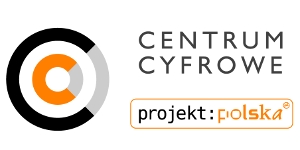 [Centrum Cyfrowe, Link (CC-BY)] Below we are publishing a joint, bi-monthly overview of the key developments in copyright reform in Poland-December and January 2014.
[Centrum Cyfrowe, Link (CC-BY)] Below we are publishing a joint, bi-monthly overview of the key developments in copyright reform in Poland-December and January 2014.
The project is conducted with the support of Open Society Foundations. Most of the links lead to content in Polish.
1. In December 2013 Centrum Cyfrowe has finished a two-year research project on copyright law and social norms related to content usage. The main purpose of the study was to provide reliable knowledge about what people today think on issues related to copyright. The report „Copyright Law in transition. On Social Norms related to Content Usage” shows that the core of today’s problems with copyright in a broad social context is anomie – an imbalance in the system of norms and values which have dominated until now; a situation where these norms cannot be upheld any longer because of a change of social conditions in which they used to function.
2. In December the Polish government has adopted a draft amendment to the Law on Higher Education. Despite earlier declarations of the Ministry, the new law does not regulate the availability of the results of research financed from the ministry’s budget. The amendment is going to establish a nationwide repository, which will store the full content of research works, together with a set of metadata. It has not been settled how the repository resources will be available to users. The only explicitly mentioned objective is the struggle against plagiarism.
3. The Polish Filmmakers Association filed a lawsuit againts Chomikuj.pl, a website which allows users to store and share with others different kinds of files. The case concerns the distribution of the three iconic Polish movies by users of the site. Film producers believe that not only did the users break the law, but also the website operators who do not verify the materials posted by users. Hence the claim for compensation from chomikuj.pl in amount of 290 thousand PLN (about 70 thousand EUR) and to establish an automatic system against copyright violations. In early December, the Warsaw Court of Appeals dismissed a class action lawsuit against Chomikuj.pl on another case by the book publishers’ association.
4. Early December, Minstry of Culture and National Heritage held the IV Copyright Law Forum, which concerned criminal liability for copyright infringement. Participants of the meeting discussed the issues of downloading files for private use, removing techniclal protection measures and plagiarism. Industry groups and collective management organizations highlighted the ineffectiveness of the penal provisions of copyright law, especially in matters of law enforcement on intermediaries, who take commercial gain from sharing copyrighted content on Web. Although the participants stressed that end users should not be prosecuted for copyright infringement, current situation and practice indicates just the opposite. Criminal provisions of the Copyright Act qualify all of copyright infringement as a crime threatened with severe penalties.
5. After the announcement of EU consultation on review of legislation on copyright and related rights, the Ministry of Culture and National Heritage launched national consultation on these issues. Unfortunately, they lasted only 16 days, were launched almost two weeks after the announcement of the EU consultation and the ministry did not submit its views to the discussion. Moreover, they included only 27 questions and the selection key was not clear. Ministry declares that the position of the Polish Government will be based on the consultation results.
6. The results of ministry consutation on review of legislation on copyright were the starting point of the V Copyright Law Forum, which took place at the end of January. Participants were discussing the advisability of introducing a EU digital single market, optimal duration of copyright protection and non-transferable right to remuneration for the creators and performers for the use of audiovisual works on the Internet. The ability to freely link from one source to another was the most complex and very emotional topic. A separate part of the meeting was devoted to exceptions and limitations of copyright law. In particular participants were discussing possible effects of full harmonization of such exceptions and the liability for non-commercial use of the work under exceptions and limitation of copyright law.
7. At the end of January, the Ministry of Culture and National Heritage presented two reports: “The study of the audiovisual market. The competitiveness of Polish Audiovisual – challenges for distributors”, which was prepared by TOMO Group, Media Desk Poland and the Polish Filmmakers Association (ZAPA) and the first stage of a two-year study “Directions and forms of transformation of readership in Poland. Report from establishement survey”. Both are part of a wider Ministry initiative related to the review of law on copyright and related rights. Analyses are intended to provide the basis for a debate on the directions of changes in copyright law.




